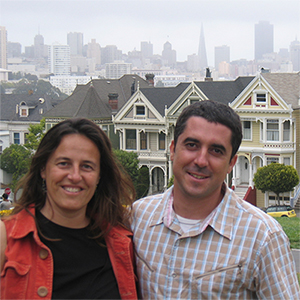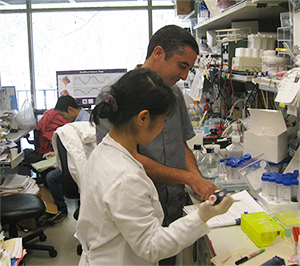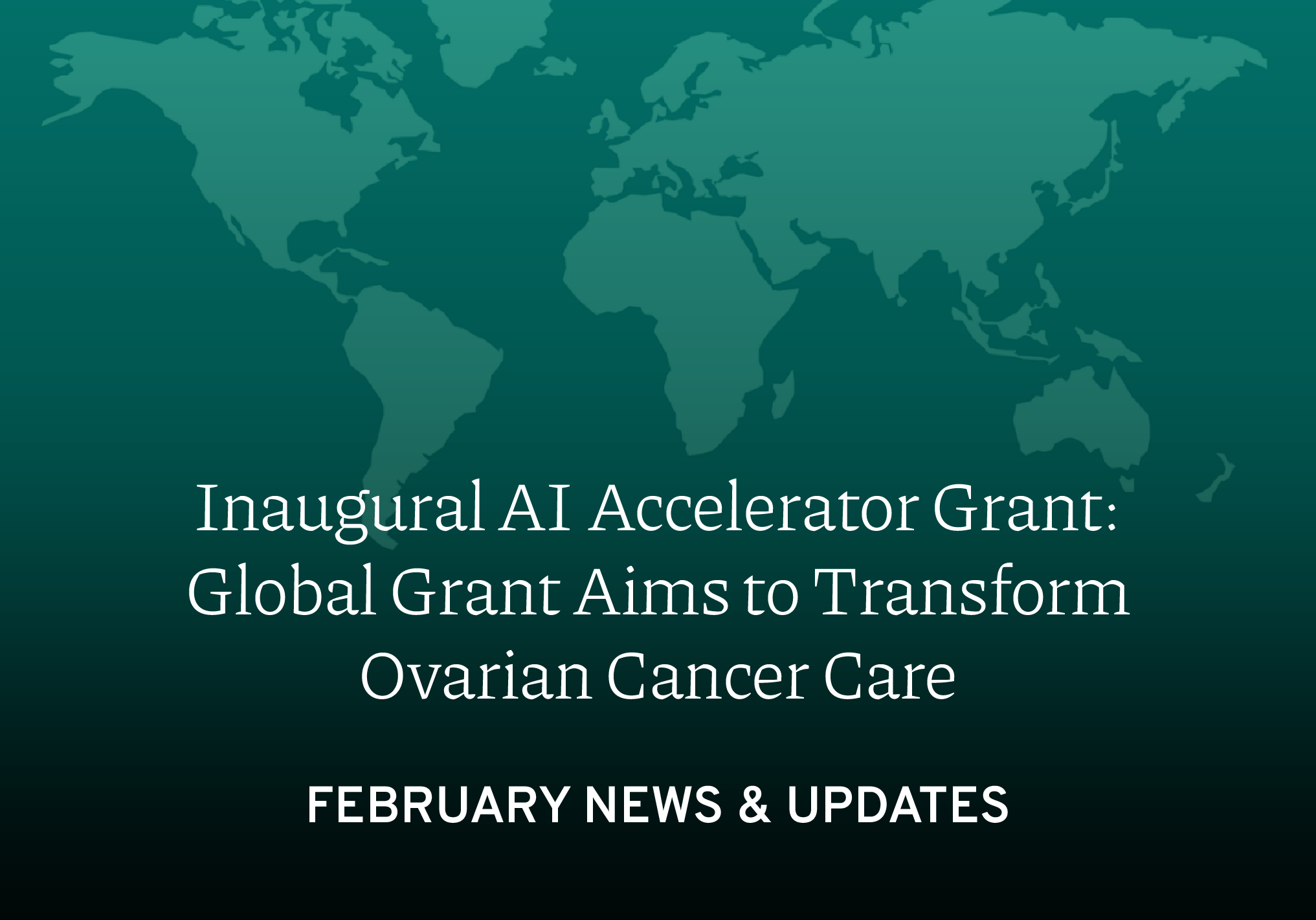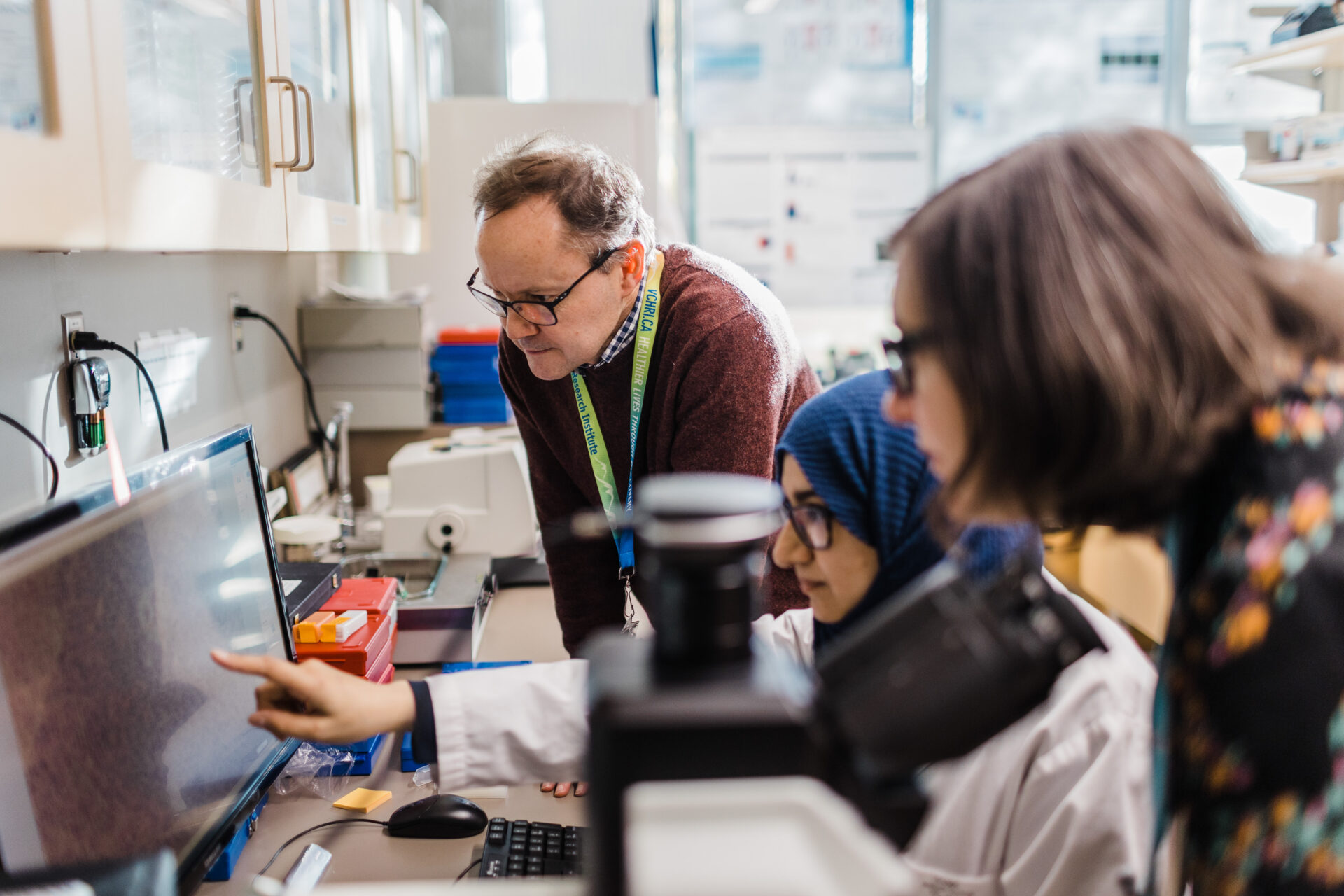12/04/2012
Ivan and Angels were young post-doctoral fellows when they first met at the University of California, San Diego eleven years ago. She was working on Alzheimer’s disease; he was conducting basic research studying breast cancer cells. At the time, they didn’t know that their labs were right next to each other, or that their mothers actually knew one another in their shared homeland of Barcelona, Spain. They dated, fell in love, then became engaged and married just as Angels received a devastating diagnosis.
A True Partnership
Angels was diagnosed with Stage II ovarian cancer four years ago at the age of 40, and after surgery, began six months of aggressive in-patient IV and intraperitoneal chemotherapy treatments. Ivan was always by her side, and they faced the challenge together.
“I did not know anything about ovarian cancer at that time. So, when Angels was diagnosed I immediately went online, which was scary because I learned about the possible outcomes. Angels never wanted to look online. She let me do that part, and I tried to do my best to provide the most positive, objective information I could give her. That was one of my most important tasks as a caregiver, to protect her from devastating information that can be often found online,” said Ivan.
Because their families were in Barcelona, it was just the two of them against the disease, and it was a true partnership. “We went through it together having different tasks: her tasks were to be strong, to fight and survive; my tasks were to handle everything else.”

A Personal Connection Becomes a Professional Mission
I always wanted to be a scientist and I love this profession,” stated Ivan Garcia-Bassets, Ph.D. “But, it’s hard from a scientific perspective to see the human side of the disease. Facing ovarian cancer and the treatment in my wife completely changed everything.”
“During the many days and nights at the hospital with Angels, I used to think about ovarian cancer, about my own ideas on how to find a cure, and immediately I was driven – almost forced – to focus my energy and research on this particular disease. I wanted to contribute to her treatment, in case Angels’ cancer became drug resistant. I decided to change course and study ovarian cancer, applying my knowledge and earlier work to this disease, focusing on metastases and drug resistance. Fortunately, Angels’ cancer was not resistant, so now I do my research for all women suffering from this disease.” In 2012, Ivan received a $450,000 Liz Tilberis grant from OCRF in support of his cutting-edge and innovative research.
Angels is now cancer-free and their partnership remains strong. “She is so proud of me! She’s very happy and supportive of my work, and even helps me in designing experiments and interpreting results. Her personal strength and positive attitude are my inspiration.”

A Message of Hope
“What I do now is totally motivated by looking in the faces of the patients, seeing not only the trauma of the diagnosis, but also the treatments and how tough they are for women and their loved ones. It’s something that we have to solve, and I’m absolutely confident that one day we’ll find a way to decrease the number of women that die from ovarian cancer.”
Ivan is optimistic about the future. “Recent advances are changing everything in the field of ovarian cancer research. We do not know when new treatments or a cure will come, but we are working intensively to develop them with more tools than ever, thanks to funding from organizations like Ovarian Cancer Research Fund. I am so proud and grateful, both as a scientist and a husband, to have been selected as an OCRF grantee.”
Your donations enable OCRF to help scientists like Ivan continue their research, and increased support will make a difference in how quickly discoveries are made. Please take a moment now to make a secure online donation to support research.


